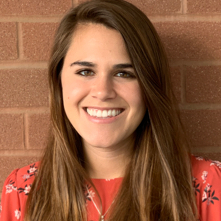Getting help for an eating disorder can be hard. For instance, it’s possible you don’t know where to turn. Maybe you’ve been thinking about reaching out for a while, but are feeling scared. Perhaps you aren’t sure if you’re “sick enough” to even need help.
Regardless of where you’re at in your recovery journey, you deserve support. As well as a safe space to explore food, body and exercise. If you feel that your relationship with food has any negative impact on your day to day life, it’s time to consider reaching out for support. Courage to Nourish is a nutrition practice of eating disorder recovery dietitians. We specialize in eating disorder nutrition support. Additionally, we guide our clients in creating an intuitive relationship with food.
Here are 5 ways to get started on your eating disorder recovery journey.
1. Reach out to someone you trust.
Eating disorders thrive off of secrecy. Therefore, confide in a person you trust to let them know how food impacts your life. In turn, this will release some of the pain that comes with the secrecy. Examples of people you can consider reaching out to are your parents, a friend, or a family member. Additionally, a coach, a teacher, or your guidance counselor can also be trusted people. As always, your struggle is valid and you deserve support.
2. Put together a team.
An eating disorder team typically consists of an eating disorder dietitian, a therapist, a physician and psychiatrist. Going through this recovery process with a team who is compassionate, understanding and knowledgeable is important. You do not have to do this alone! We’ve written a few different blogs about working with an eating disorder specialist. They explain how to know if an eating disorder dietitian is the right fit for you. Therefore, if you have questions about recovery, read these blogs:
Working with An Eating Disorder Dietitian
Why Meet with an Eating Disorder Dietitian
Maryland Eating Disorder Resources: This blog includes questions to ask a potential eating disorder provider.
3. Consider joining an eating disorder support group.
It can be helpful to get feedback and support from peers who are struggling with an eating disorder. In fact, we have eating disorder support groups at Courage to Nourish. If you decide to join an eating disorder group, there is no pressure to talk or give feedback. To clarify, some people find groups helpful just by listening. In addition, it may be helpful to ask the group leader some questions before joining. For example, how many people attend each week and what the typical age range is.
4. Take advantage of free resources.
Social media, blogs, books and podcasts are all great (free or inexpensive!) resources to take advantage of. For this reason, we have a list on our website. It is on our eating disorder resources page. You can also share these resources with family members or friends. Therefore, they are able to educate themselves on eating disorder recovery to help support you.
5. Make a commitment.
Reaching out to begin your eating disorder recovery journey can be very scary. For one thing, you might not know what to expect from your first therapy appointment. Or your first appointment with an eating disorder dietitian. Therefore, sending that first email or making that first phone call is a huge first step. First, make a commitment to make that first phone call. Then, make a commitment to show up to your first appointment. Take recovery one step at a time.
Final Notes
Courage to Nourish is an eating disorder specialized nutrition practice in Maryland. We have office space located in College Park, MD, Columbia, MD. and Alexandria, VA. Additionally, we see clients virtually in Maryland, Virginia, Washington, DC. Pennsylvania and Colorado. If you’re looking for an eating disorder dietitian, contact us today for more information! We’d love to work with you!

Helping my clients cultivate meaningful connections and interests outside of their eating disorder is a true passion of mine. I like to think my clients and I are on a team to navigate recovery. I love working with high school and college students as well as athletes seeking to have a better relationship with exercise. I am a proud anti-diet dietitian and work with my clients through a Health At Every Size © and intuitive eating framework.

